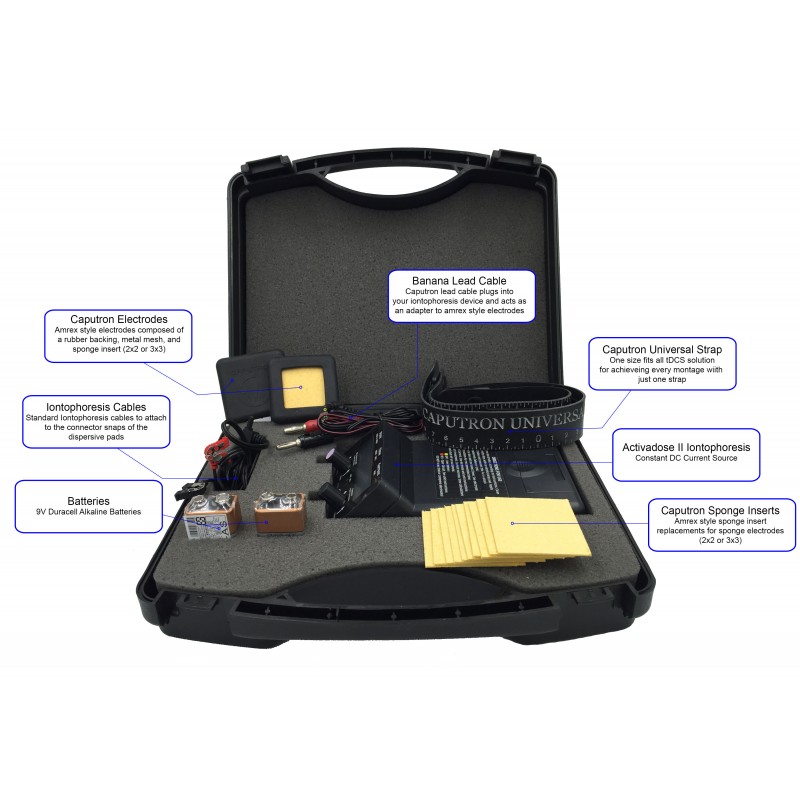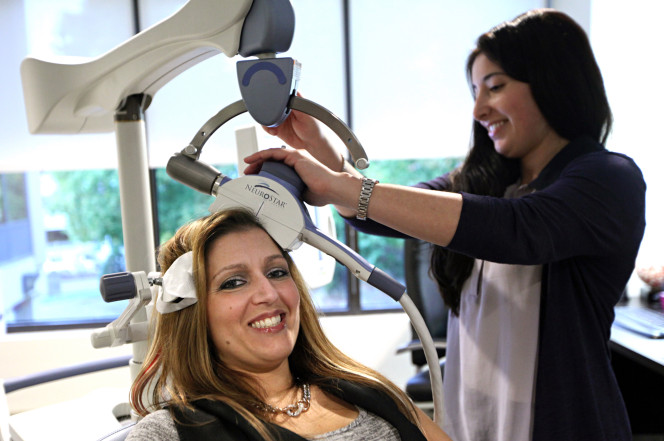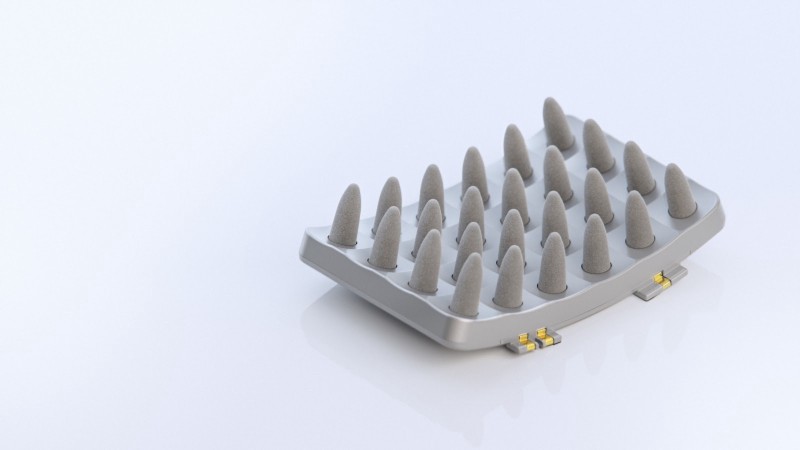Robin at Caputron sends word of their new ‘exclusively from Caputron’ ActivaDose 29V 2mA max Iontophoresis device. My one caveat with the ActivaDose had been the potential for user error in choosing a 4mA setting (rather than the 1 or 2mA setting traditionally used in tDCS research). This new device removes that possibility. This is the device you could confidently show your Mom how to use. The new version maintains the ActivaDose FDA approval for iontophoresis. This new version becomes the device I can recommend in all confidence, also because Caputron stands behind all the products they offer.
Readers of the blog get a generous discount on this, or any other (including GoFlow) device purchased at Caputron using promo code diytdcs at checkout.
Monthly Archives: October 2016
Cloud-Based tDCS Device For Remotely-Supervised Trials
Our ~6 min video about the
#cloud#tDCS@Eng_IT_Sydney project! Featuring@UNSW &@BlackDogInst‘s Prof Colleen Loo.We developed a cellular brain stimulation device as part of our ELEC5622 Sensors, Signals & Health assessment at the University of Sydney. The technique, known as transcranial direct current stimulation (tDCS), uses weak electrical currents to modulate ongoing brain activity, and is a promising treatment for a range of neurological and psychiatric diseases. As the feasibility of administering tDCS at home has recently become an emerging area of research, there is a substantial need for a tDCS device which send data to the clinician in real time.
[Update 11/7/16 The video mentioned has been deleted.]
Want to ‘train your brain’? Forget apps, learn a musical instrument | TheGuardian
Unlike commercial brain training products, which only improve performance on the skills involved, musical training has what psychologists refer to as transfer effects – in other words, learning to play a musical instrument seems to have a far broader effect on the brain and mental function, and improves other abilities that are seemingly unrelated.
“Music reaches parts of the brain that other things can’t,” says Loveday. “It’s a strong cognitive stimulus that grows the brain in a way that nothing else does, and the evidence that musical training enhances things like working memory and language is very robust.”
Full story: Want to ‘train your brain’? Forget apps, learn a musical instrument
TMS & Depression In The News
Now that TMS has been approved for the treatment of depression we’re seeing a lot more stories in the news. Naturally this is in part due to the marketing efforts of the four device makers currently FDA approved: Brainsway, Magstim, Magvita, and Neurostar. No doubt patients and doctors are eager to try an alternative where antidepressants didn’t work!
I will update this post as I find new and interesting news stories related to TMS and depression.
Magnets cured my depression
New symptom-free treatment helps depression, reduce military suicides
University of British Columbia Explores tDCS With Yoga in Treatment of Depression
Fidel Vila-Rodriguez, an Assistant Professor of Psychiatry at the University of British Columbia, is exploring the effects of transcranial direct current stimulation combined with yoga, to see if it can be used to treat depression.
From UBC: Harnessing electricity to treat depression – in a kinder, gentler way
Spotlight on Halo’s Engineering: An Interview With Brett Wingeier, CTO | Medium
A big challenge for us has been: how do you get through the hair? Well, quite simply, with something that looks like a comb or brush. We engineered the primers to reflect a comb-like design — with rows of soft elastic foam tips called nibs. We spent the last two years coming up with the best shape, material, stiffness, angle, and geometry for these nibs, and then figuring out how to make them.
Spotlight on Halo’s Engineering: An Interview With Brett Wingeier, CTO


 Peter Simpson-Young
Peter Simpson-Young 
